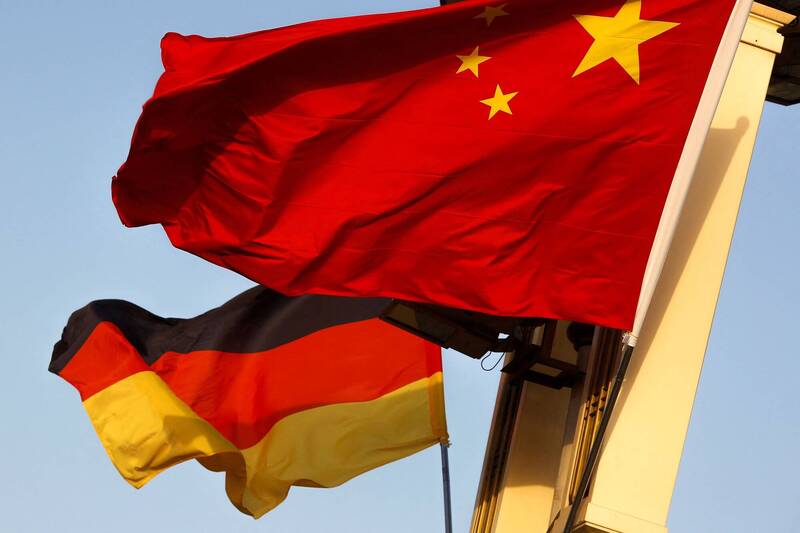German Chancellor Scholz last year declared an "epochal turning point" in German foreign policy, emphasizing the need for a comprehensive China strategy.
(Reuters file photo)
[International News Center/Comprehensive Report] The largest opposition group in Germany, the "Christian Democratic Union/Bavarian Christian Social Union" (CDU/CSU), is abandoning the China policy during Angela Merkel's tenure as chancellor, and believes that peace can be maintained through trade The strategy has failed, calling for the creation of a "Zeitenwende in China policy" (Zeitenwende in China policy).
The U.S. political news website Politico reported on the 26th that this is a significant course adjustment for the German conservative party that has pursued a strategy of goodwill with China and Russia and economic interdependence during Merkel's 16 years in power. , and the incentives for this strategic shift were Russia's invasion of Ukraine and China's growing political and economic aggressiveness in Asia and elsewhere.
Please read on...
According to a draft position paper seen by Politico, German conservatives believe that the idea of maintaining peace through economic cooperation has failed for Russia and "is increasingly failing" for China.
The 22-page document, which will be adopted by the CDU/CSU group in the Bundestag around Easter, also outlines the main points of the coalition's new China policy.
The report pointed out that after Russia invaded Ukraine, the world order changed. Chancellor Olaf Scholz last year declared a "zeitenwende" (Zeitenwende) in German foreign policy, especially German Deputy Chancellor and Economy Minister Robert Habeck. Both Germany and Foreign Minister Annalena Baerbock emphasized that Germany needs to formulate a comprehensive China strategy.
A comprehensive strategy has yet to emerge, although the Ministry of Economy and the Ministry of Foreign Affairs have drawn up two different drafts.
The foreword to this position paper states that the rise of communist China is the central, historic challenge of the 21st century for all countries seeking to preserve, strengthen and support a rules-based international order epochal challenge of the 21st century for all states seeking to preserve, strengthen, and sustain the rules-based international order.).
The CDU/CSU caucus said they were open to building a "national consensus" with the Shorts government, which should be incorporated into the national security strategy and Europe's strategy on China.
The relationship between Germany and China is formulated by the European Commission in 2019 and presented in three dimensions as described in the current joint agreement of the German government: According to this strategy, China is regarded as a partner, an economic competitor and an institutional rival (a partner, economic competitor and systemic rival).
However, the CDU/CSU paper says policy toward China should move away from a pragmatic, pro-Beijing stance, especially on trade, and that "we should not turn a blind eye to China's initiative to shift the balance and clearly push the core of the relationship towards an institutional one." the fact of competition.”
Under Merkel, the German conservative coalition has long favored economic cooperation and political rapprochement with China and Russia.
Merkel, for example, pushed for a major EU-China investment deal before leaving office, which has since been frozen by the European Parliament because of Beijing's sanctions on MEPs.
The document also calls for the creation of an "epoch-making turning point in China policy", concluding that wherever China seeks and forces competition, Germany should "respond with competence and strength"; it should build its own resilience and defensive capabilities, aligned with interests and values similar partners to form and expand alliances and partnerships; China will only demonstrate a willingness to cooperate with China if it accepts cooperation in an open, transparent and credible manner.
The CDU/CSU document also calls for the development of a European China strategy and the establishment of a "European China Council" (European China Council) with EU neighbors to strengthen cooperation. One of the core points is to strengthen reciprocity and the sovereignty.
Germany's largest opposition group, the "CDU/CSU", will abandon Merkel's China policy during her tenure as chancellor, arguing that the strategy of maintaining peace through trade has failed.
(Associated Press file photo)
